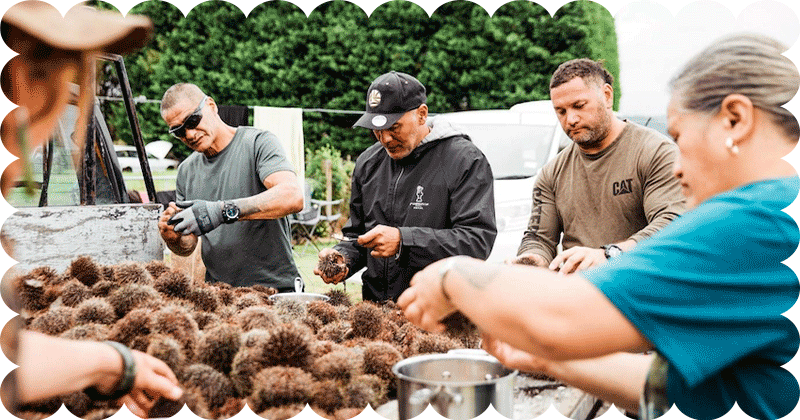The big three missing from Christchurch Call announcement
Meta, Google and TikTok have a combined annual revenue of $400b, yet were missing from the list of social media companies pledging to support a $1.5m research project into algorithms
Mōrena and welcome to The Bulletin for Thursday, September 22, by Anna Rawhiti-Connell. Presented in partnership with Z Energy.
In today’s edition: Putin calls up 300,000 military reservists; academics call for Covid inquiry; proportion of men in higher education at all time low; but first, the biggest and fastest growing online platforms missing from new Christchurch Call initiative.
Prime Minister Jacinda Ardern speaking to media in New York where she is attending the UN General Assembly. (Photo: AFP)
What is a social media algorithm?
Deciding to write a 500-ish word lead on social media algorithms and yesterday's announcement of a new Christchurch Call initiative is maybe not my smartest call. It’s a very large subject. But sometimes these things get reported and there’s an assumption that everyone will nod knowingly and say “yes, the social media algorithms” and “$1.5m to study them to end extremism online? Seems good”. Words like “platforms” and “algorithms” are a bit opaque. To start, here’s an excellent and recent explainer from NPR on social media algorithms, why they exist, how they influence what you see online and how they do or don't steer people towards outrage and radicalisation.
Yesterday’s announcement a response to questions about the Call’s efficacy
The announcement consisted of a commitment of $1.5m towards researching social media algorithms in collaboration with the company Openmined. If you’re a tech buff, here’s their website. RNZ have the simplest overview of what the research actually involves. Established as a response to the Christchurch mosque shootings, the goal of the Christchurch Call is to end online extremism. RNZ’s Colin Peacock had a very good recap of where we were at in May. “Nobody really talks about the algorithms of these social media companies,” Imran Shakib from the Islamic Council of New Zealand said at the time.
Biggest and fastest growing platform missing from list of collaborators
Meta (Facebook, Instagram, WhatsApp), Google (owns YouTube) and ByteDance (TikTok) were conspicuous by their absence from the list of companies that are cooperating with the research. The prime minister brushed criticism of that aside saying “Once we are able to build that platform, that could be used across multiple platforms". That might be the case, but it wasn’t clear whether permission from non-participating social media platforms is required for the work or why the company that owns TikTok isn’t participating. TikTok is the fastest growing platform in the world right now. It’s also plagued by all the same problems every other corner of the internet is - hate speech, extremist content and misinformation. Garbage Day’s Ryan Broderick wrote a fantastic piece yesterday on TikTok’s dominance and described its algorithm as the most aggressive we’ve seen.
Internet NZ says our laws and processes are not adequate
The companies not cooperating have a combined annual revenue of $400b, twice our GDP. The New Zealand arms of Meta and Google sent $284m back to their parent companies (paywalled) this year. Regulation of those companies (no easy task based on how it's going in the US right now), is a can that’s been repeatedly kicked down the road. Internet NZ’s Andrew Cushing, a Christchurch Call advisory group member, said yesterday “that our laws and processes are not adequate for the online world that we live in, and some communities are experiencing hate, hurt and threats of violence.” Meanwhile, those communities are still waiting for a new national intelligence and security agency to be set-up, three years on from the horrific events that sparked the Christchurch Call in the first place.
The Māori innovators turning big ideas into reality
From re-indigenising maps of Aotearoa to showcasing and teaching traditional kaimoana gathering practices, the ideas of Māori researchers, innovators and thinkers are becoming reality with help from Te Pūtea Whakatupu Trust. The trust awards two grants annually to initiatives that support Māori in advancing tikanga Māori, matauranga Māori and Te Ao Māori within the oceans section, and rangatahi Māori who aspire to community leadership, or organisations supporting rangatahi to become leaders in their community.
Read more about some of the amazing work of previous scholarship recipients on The Spinoff now.
Russia expands war effort in Ukraine
Last night Russian president Vladimir Putin made a rare appearance on Russian television and announced a partial mobilisation of military reservists. The Guardian reports that will number up to 300,000 mostly young men, now called up for a war that the president has sought to shield his population from. Putin has avoided mandatory conscription up until now. Putin also warned that he wasn't bluffing over using everything at his disposal to protect Russia – an apparent reference to his nuclear arsenal. There are reports that Russians are booking one-way tickets out of the country and there are fears that the border may close. Prime Minister Jacinda Ardern met with Ukrainian Prime Minister Denys Shmyhal in New York yesterday and has lent her voice to the chorus of condemnation directed at Putin.
Inquiry needed now while memories are clear
Academics at the University of Otago, including Professor Nick Wilson are calling for an inquiry into our Covid response and say the time to do it is now while memories are clear. Wilson said New Zealand’s Covid strategy was one of the world’s most successful, but it still fell short in various ways. The academics note that historically, almost all sudden mass fatality events with more than ten deaths have resulted in an official inquiry and often positive change. Wilson said it needs to be done at a Royal Commission of Inquiry level.
Large numbers of undereducated young men “not good for New Zealand”
The percentage of domestic university students who are men has reached an all-time low of 39% and it is worrying universities as RNZ’s John Gerritson reports. The number of men who are full or part-time students has actually increased in the last two years but the number of students who are women has increased at a greater rate. A tight labour market, apprenticeship schemes and a cost of living crisis that means kids are leaving school to contribute to the family’s income, all factor into this. I also had some feedback on the AUT story the other week from a reader that said “universities have not adapted their product to the changing world fast enough.” Despite all that, the concern from the Universities New Zealand’s Chris Whelan is that men might find themselves shut out of highly-skilled jobs as trends change over the long term.
Click and collect
Wayne Brown inches ahead of Efeso Collins in latest Auckland mayoralty poll (still a lot of undecideds)
Independent council candidates running against Labour candidates say Wellington mayoral hopeful Paul Eagle has been giving them campaign advice.
Several hundred eels have gone missing on the West Coast - a reel mystery.
New Zealand businesses urge the government to address the gender pay gap.
Government reviewing terms of 1992 privatisation of BNZ after historic art auction.
Got some feedback about The Bulletin, or anything in the news? Get in touch with me at thebulletin@thespinoff.co.nz.
If you liked what you read today, share The Bulletin with friends, family and colleagues.
Hayden Donnell says now that the Queen's funeral is over it’s time for New Zealand to have the about whether we really want to continue supporting an ultra-wealthy hereditary elite. Reweti Kohere asks why you can’t advertise online in te reo Māori. Aimie Cronin hears Hamilton mayor Paula Southgate's frustrations at being labelled the "nice mayor". Nadine Anne Hura unpacks the real reason Māori are on both sides of the tangled pine forest debate. And you may have seen the trailer for David Farrier's new documentary Mister Organ was released yesterday – this is the story, first published in 2016, that started it all.
Jamaican team beaten by Silver Ferns
I took a break from updates on what’s turned into a pretty big sports story but now must follow it through to its conclusion. The Jamaican team lost to the Silver Ferns last night. They ended up having two former internationals and coach Connie Francis on standby to play. Francis is in her mid 50s, would still outplay most of us on the court and didn't have to play, but this is not an ideal situation for an international fixture. World Netball is launching an investigation into what happened. It’s taken the shine off a great performance from the Jamaicans at this year's Commonwealth Games and I’d imagine done some reputational damage, especially after the Games performance resulted in the team picking up a corporate sponsor.
“I get enraged when people say New Zealanders had plenty of time to get back home in March”
Now that the pandemic is over (it’s not but ok Joe Biden), we’ll start to see more stories that give us a look at what happened behind the scenes on unprecedented and enormous operations like MIQ. Today’s long read is from Yvonne van Dongen in North and South. van Dongen talks to Kara Isaac, who experienced MIQ twice as a returning traveller in difficult personal circumstances and then took a job as general manager of MIQ policy at the Ministry of Business, Innovation and Employment.












What good will an enquiry into our COVID response do - we can’t change any of it. It was always an evolving situation. It’s well documented should another pandemic come along (which is quite likely given the health of our planet) haven’t we done enough to sort what may apply in that circumstance. There are plenty of more urgent problems to be dealing with without re-examining the past.